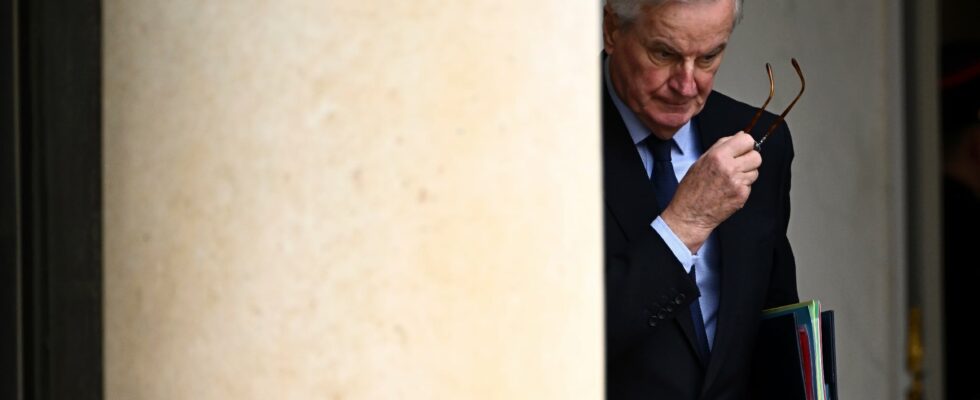The outcome now appears inevitable. Unless the situation changes, Michel Barnier and his government will fall on Wednesday December 4, on the occasion of the motion of censure tabled by the New Popular Front, and which the National Rally has announced that it will join. France will once again find itself without an executive. Above all, she still won’t have a budget. And with less than a month to go before the deadline of December 31, 2024 set by the Constitution, time is more limited than ever.
“It is legally, politically and constitutionally impossible for the next Prime Minister, if there is censorship, to be able to have a new finance bill adopted before the end of the year,” says Bernard Monassier, vice-president of the Cercle des tax specialists. There would then be few alternatives left to avoid an American-style “shutdown” – when the administration ceases to function and the State can no longer collect revenue or spend its credits. The most likely option would be the vote of a “special law”, provided for by article 45 of the organic law relating to finance laws (LOLF) of 2001. It would make it possible to renew the 2024 budget for the year 2025 .
https://www.youtube.com/watch?v=undefined
The recklessness of Marine Le Pen
Once appointed by Emmanuel Macron, Michel Barnier’s successor will have until December 19 to present this bill, which will then have to be approved by Parliament. A step which should, paradoxically, pose much fewer problems than the examination of the 2025 budget: the RN, the first group in the National Assembly in terms of number of deputies, has committed to voting for this famous “special law” if it comes to be put on the table. No excitement on Marine Le Pen’s side on this subject, on the contrary. “It just resets the counters to renegotiate on an acceptable basis,” argued the group president this weekend at The Tribune.
Yet so quick to defend the purchasing power of the French, the far-right elected official evades a major fiscal parameter: in the event of a special law, the income tax scale would not be indexed to inflation as every year. However, wages tend to increase to keep up with the rise in prices. “The Ministry of Finance indicated that this mechanical freeze would bring nearly 400,000 tax households within the scope of income tax and would increase the burden of income tax on 18 million tax households already affected by this one”, underlines Aurélien Baudu, professor of public law at the University of Lille. Not so long ago, this measure was considered by the Barnier government as part of its plan to reduce the public deficit to 5.5% of GDP in 2025. It was expected to generate around 4 billion euros. additional revenue.
For Bernard Monassier, this deindexation would, in macroeconomic terms, have “a marginal cost for households”. On the other hand, the symbolic significance would be, according to him, enormous. “This is something politically sensitive. Affected taxpayers would have a hard time accepting it,” he adds. A word to the wise, for the National Rally, which could be sanctioned at the polls during the next elections. On the other hand, the minimum wage and social minimums are not affected. Their indexation to inflation is done automatically every year and is therefore not included in the finance bill, except in the event of an exceptional revaluation.
Political instability until when?
Everything will, once again, be a question of timing. The “special law” logically does not apply indefinitely. “To correct the income tax scale for inflation, it would however be imperative to have the new finance law for 2025 published in the Official Journal before the income tax declaration campaign for the month of May “, warns Aurélien Baudu. This was the case in 1980, recalls the expert, when the government of Raymond Barre managed to have its budget adopted on January 18 after a special law. The income tax scale was then narrowly indexed. A relief for taxpayers at the time. “Annual inflation was close to 14% that year!”, specifies Aurélien Baudu.
The profile of the new tenant of Matignon chosen by Emmanuel Macron will be decisive. At the risk of experiencing a vicious circle which would see the future Prime Minister try to forcefully adopt a budget with a new 49-3, due to lack of a political majority, only to be censored. Political instability could then continue until June, when the head of state will be able to dissolve the National Assembly for the second time in a year, hoping to regain the majority that has escaped him. A worst-case scenario that cannot be ruled out, as the different parties seem to want to stick to their positions. Reducing the public deficit would then become the least of the President of the Republic’s concerns.
.
